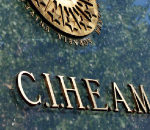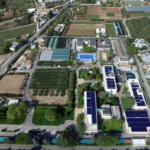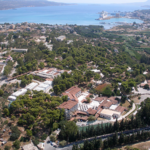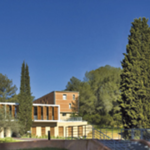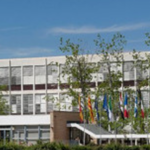Mediterranean Culinary Heritage Experiences: how to create sustainable tourist destinations?
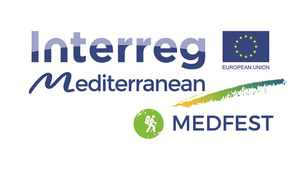
MEDFEST is tackling the challenge of diversifying traditional ‘sun & sea’ tourism destinations, with new and sustainable products based on the rich and renowned culinary heritage of the Mediterranean.
This approach is unique because Mediterranean culinary heritage initiatives are generally unconnected and to this day there have been only few common approaches developed to integrate this culinary heritage into a sustainable tourism offer. The methodology in MEDFEST is based on participatory action planning, where three main types of stakeholders (producers, tourism organisations, policy makers) are involved and take responsibility for the project’s actions from the beginning till the end to ensure the sustainability of the results.
Objectives
MEDFEST’s general objective is to create or improve existing strategies related to sustainable tourism development within the traditional Mediterranean small-scale culinary sector.
The project aims at creating tools and instruments for designing new sustainable and alternative culinary experiences, which will be offered to visitors.
Activities
- Create tools for enhancing sustainable tourism destinations by using culinary heritage as a resource;
- Foster the creation of eight new sustainable tourism destinations in the Mediterranean area;
- Develop a common transnational strategy on managing and planning culinary tourism in the Mediterranean area.
Results and impacts
- Increase the tourism sustainability and quality of life in the Mediterranean area;
- Diversify the tourism sector in terms of products and seasonality;
- Extend tourism development to the rural coastal hinterland;
- Safeguard the Mediterranean culinary heritage for future generations.
More information
Source of funding: Programme InterReg Med/ fonds UE FEDER
Contacts:
- David BOLE, coordinateur, ZRC-SAZU, Slovenia, david.bole@zrc-sazu.si
- Fatima EL HADAD-GAUTHIER, Teacher-researcher, CIHEAM-IAMM, France, elhadad@iamm.fr
Total budget: 2 218 473 €
Partners:
- Research Centre of the Slovenian Academy of Sciences and Art (ZRC SAZU) - Slovénie
- Associazione Svilupo Rurale (ASR) - Italie
- Ecole d’Ingénieur de Purpan (EI PURPAN) - France
- Université de Barcelone (UB) - Espagne
- Associação In Loco - Portugal
- Agence pour le développement rural de l’Istria Ltd. (AZRRI) - Croatie
- Technical Institute of Heraklion Chamber (TIHC) - Grèce
- Τroodos Network Thematic Centers (DITHEKET) - Chypre
- CIHEAM-IAMM is part of the 11 additional associated partners - France


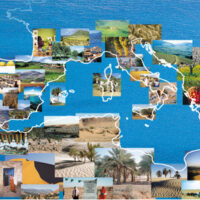 CIHEAM MontpellierOur vision is that of a Mediterranean basin characterised by a spirit of cooperation.
CIHEAM MontpellierOur vision is that of a Mediterranean basin characterised by a spirit of cooperation.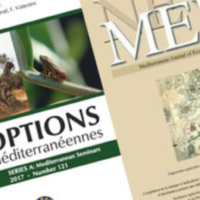 CIHEAM publicationsOur publications and communication tools aim to facilitate decision-making processes for political, economic and agricultural actors in the Mediterranean region
CIHEAM publicationsOur publications and communication tools aim to facilitate decision-making processes for political, economic and agricultural actors in the Mediterranean region News and events
News and events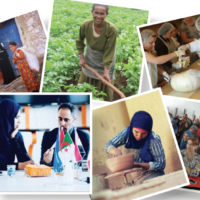 Press review (Scoop.it)
Press review (Scoop.it) Master programmesThe CIHEAM Montpellier stands for both personalised accompaniment and international openness.
Master programmesThe CIHEAM Montpellier stands for both personalised accompaniment and international openness.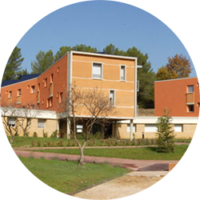 Campus & student lifeSince 1962, almost 95% of our foreign students have been granted accommodation on site.
Campus & student lifeSince 1962, almost 95% of our foreign students have been granted accommodation on site.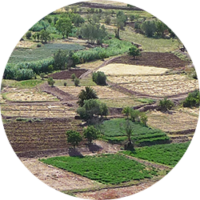 Doctoral platformShaping the scientists of tomorrow through research training… A natural commitment of the CIHEAM Montpellier
Doctoral platformShaping the scientists of tomorrow through research training… A natural commitment of the CIHEAM Montpellier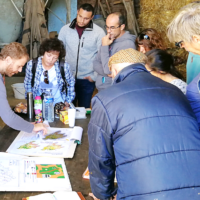 ProjectsOur research and cooperation projects are tools for inclusive development, they take into account the populations and rural and coastal territories of the Mediterranean.
ProjectsOur research and cooperation projects are tools for inclusive development, they take into account the populations and rural and coastal territories of the Mediterranean.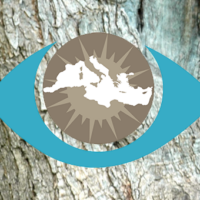 Mediterranean online catalogueA unique Documentation Center on the Mediterranean,
invested in sharing knowledge.
Mediterranean online catalogueA unique Documentation Center on the Mediterranean,
invested in sharing knowledge.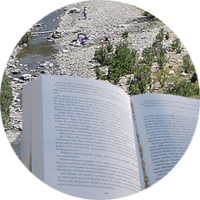 Scientific productionThe scientific production of the CIHEAM Montpellier is the fruit of collaborations by our lecturer-researchers, associated experts, students and research partners.
Scientific productionThe scientific production of the CIHEAM Montpellier is the fruit of collaborations by our lecturer-researchers, associated experts, students and research partners. Becoming partnersCreating partnerships is part of the genetic make-up of the CIHEAM Montpellier... Join one of its projects or study programmes, support its actions.
Becoming partnersCreating partnerships is part of the genetic make-up of the CIHEAM Montpellier... Join one of its projects or study programmes, support its actions.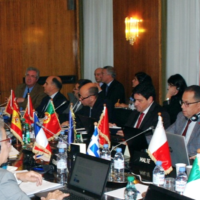 Ministerial meetingsThrough the Ministerial, CIHEAM contributes to the construction of a dialogue between the Mediterranean countries around questions relating to agriculture and the rural world.
Ministerial meetingsThrough the Ministerial, CIHEAM contributes to the construction of a dialogue between the Mediterranean countries around questions relating to agriculture and the rural world.